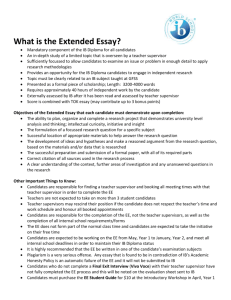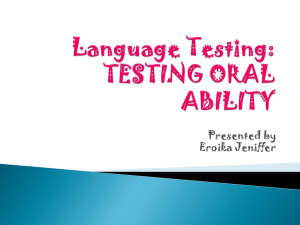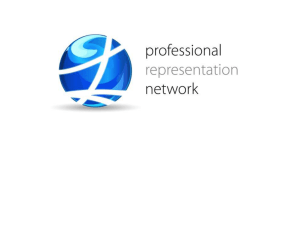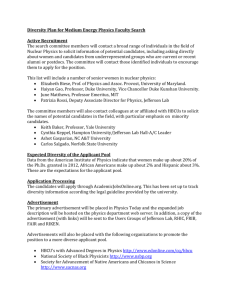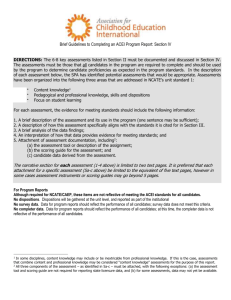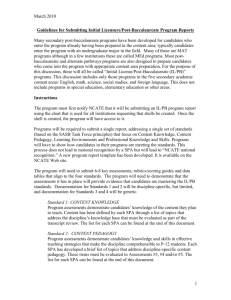SOE (School of Education)
advertisement
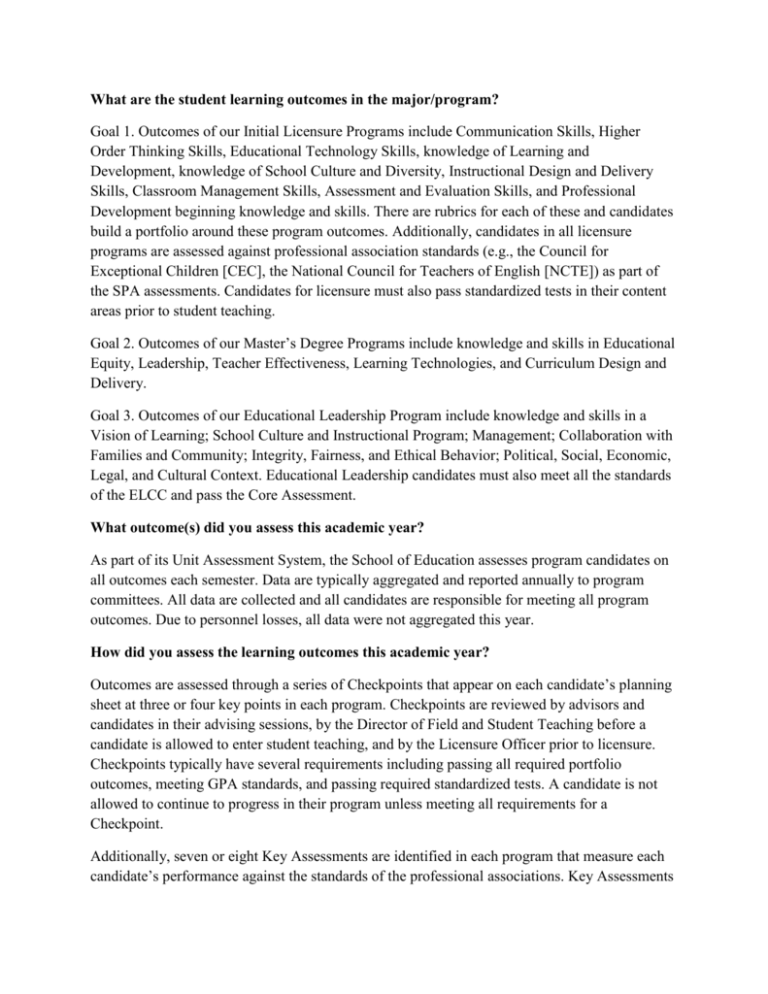
What are the student learning outcomes in the major/program? Goal 1. Outcomes of our Initial Licensure Programs include Communication Skills, Higher Order Thinking Skills, Educational Technology Skills, knowledge of Learning and Development, knowledge of School Culture and Diversity, Instructional Design and Delivery Skills, Classroom Management Skills, Assessment and Evaluation Skills, and Professional Development beginning knowledge and skills. There are rubrics for each of these and candidates build a portfolio around these program outcomes. Additionally, candidates in all licensure programs are assessed against professional association standards (e.g., the Council for Exceptional Children [CEC], the National Council for Teachers of English [NCTE]) as part of the SPA assessments. Candidates for licensure must also pass standardized tests in their content areas prior to student teaching. Goal 2. Outcomes of our Master’s Degree Programs include knowledge and skills in Educational Equity, Leadership, Teacher Effectiveness, Learning Technologies, and Curriculum Design and Delivery. Goal 3. Outcomes of our Educational Leadership Program include knowledge and skills in a Vision of Learning; School Culture and Instructional Program; Management; Collaboration with Families and Community; Integrity, Fairness, and Ethical Behavior; Political, Social, Economic, Legal, and Cultural Context. Educational Leadership candidates must also meet all the standards of the ELCC and pass the Core Assessment. What outcome(s) did you assess this academic year? As part of its Unit Assessment System, the School of Education assesses program candidates on all outcomes each semester. Data are typically aggregated and reported annually to program committees. All data are collected and all candidates are responsible for meeting all program outcomes. Due to personnel losses, all data were not aggregated this year. How did you assess the learning outcomes this academic year? Outcomes are assessed through a series of Checkpoints that appear on each candidate’s planning sheet at three or four key points in each program. Checkpoints are reviewed by advisors and candidates in their advising sessions, by the Director of Field and Student Teaching before a candidate is allowed to enter student teaching, and by the Licensure Officer prior to licensure. Checkpoints typically have several requirements including passing all required portfolio outcomes, meeting GPA standards, and passing required standardized tests. A candidate is not allowed to continue to progress in their program unless meeting all requirements for a Checkpoint. Additionally, seven or eight Key Assessments are identified in each program that measure each candidate’s performance against the standards of the professional associations. Key Assessments are also class assignments but these assessments must be passed to receive a passing grade in the course. CASA and CORE standardized tests that are required of Education candidates are administered by Pearson and scores are sent to campuses. Please summarize the data you have collected this academic year Data on all outcomes were collected this year. For Goal 1, all Initial Program candidates met all the portfolio outcomes with a score of 3 or higher (out of 4) by the Checkpoint prior to student teaching. Some missing data were noted and steps were taken to correct it (i.e., remind instructors to turn in copies of rubrics). Additionally, Initial Program candidates passed all SPA assessments with a score of 2 or higher (out of 3). Candidates for licensure must also pass standardized tests in their content areas prior to student teaching. This year completed the transition from Praxis I and II to Pearson’s CASA and CORE standardized tests that are required of Education candidates. ETS has stopped sending us Praxis score summaries. Pearson will be sending summary scores to our campus in the future. During this time of transition, we can report that all students who entered our programs met the basic skills requirements by passing the CASA test or meeting the SAT or ACT cut score requirements. The pass rate of the CORE exit exams is unclear. The state changed the cut scores for several of the tests during this last year. We ensure that each candidate has passed all required CORE exams before being admitted to student teaching. For Goal 2, all candidates receiving a Master’s degree from the School of Education last year met the portfolio outcomes of the advanced conceptual framework with a score of 2 or higher (out of 3). For Goal 3, all candidates met the outcomes of our Educational Leadership Program and the standards of the ELCC prior to receiving their Master’s degree in Educational Leadership and their licenses as school principals. We ensure that each candidate has passed the required CORE exam before receiving their degree and license. Please describe any programmatic changes you have made or are planning to make based on the data you have collected. Our faculty is constantly learning from our data and revising our programs to improve student completion rates and subsequently, success rates in the profession. For example, changes to the state-required CORE standardized tests for elementary teacher candidates prompted changes in our curriculum to include more content in social studies and science. Students wanting to enter the School of Education (SOE) are required to pass the new CASA test of basic skills. Many students attempt these tests and fail and therefore, don’t enter the SOE. To support students in their basic skills, we are now offering three course sections (EDUC-M101) that focus on the basic skills of math, reading, and writing. We hope to positively impact the pass rate of this standardized test among our IU Northwest students. Please report on the progress of your action steps reported in 2013-14 The School of Education engages in the continuous improvement of its assessment system. This involves revising instruments, improving data collection procedures, and increases collaboration with P-12 partners in the assessment process. The School of Education will be revising some assessments and creating new assessments this coming year in response to new accreditation requirements. Although a few years away, the School of Education is preparing for its SPA and CAEP accreditation reviews because each requires at least three years of data prior to the review. Several professional organizations (e.g., CEC, ELCC) have revised or are revising their standards and this requires realignment with our program outcomes and course objectives. Faculty members are providing input to national standards committees and are waiting on the final drafts of the various national standards to make programmatic changes.


